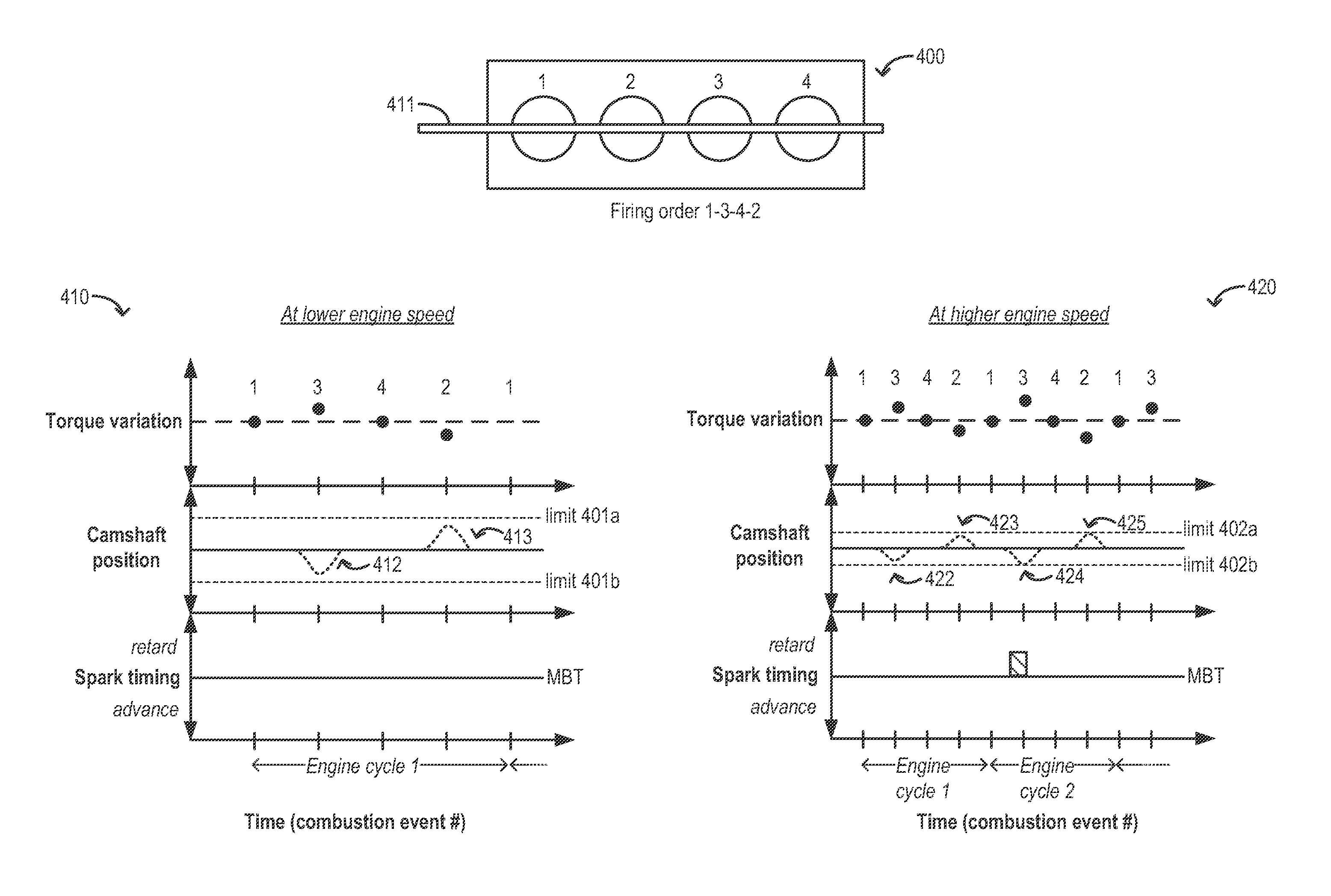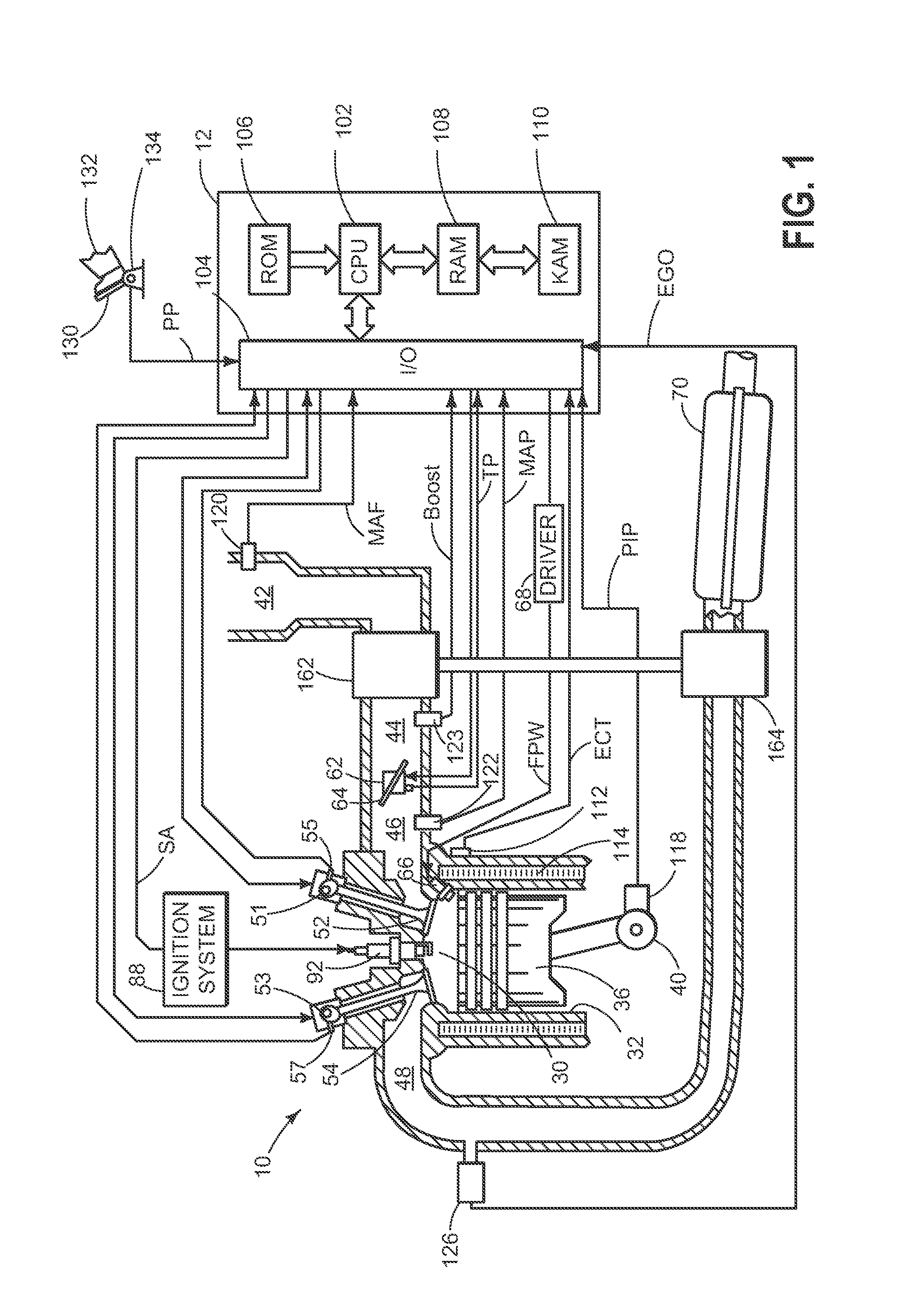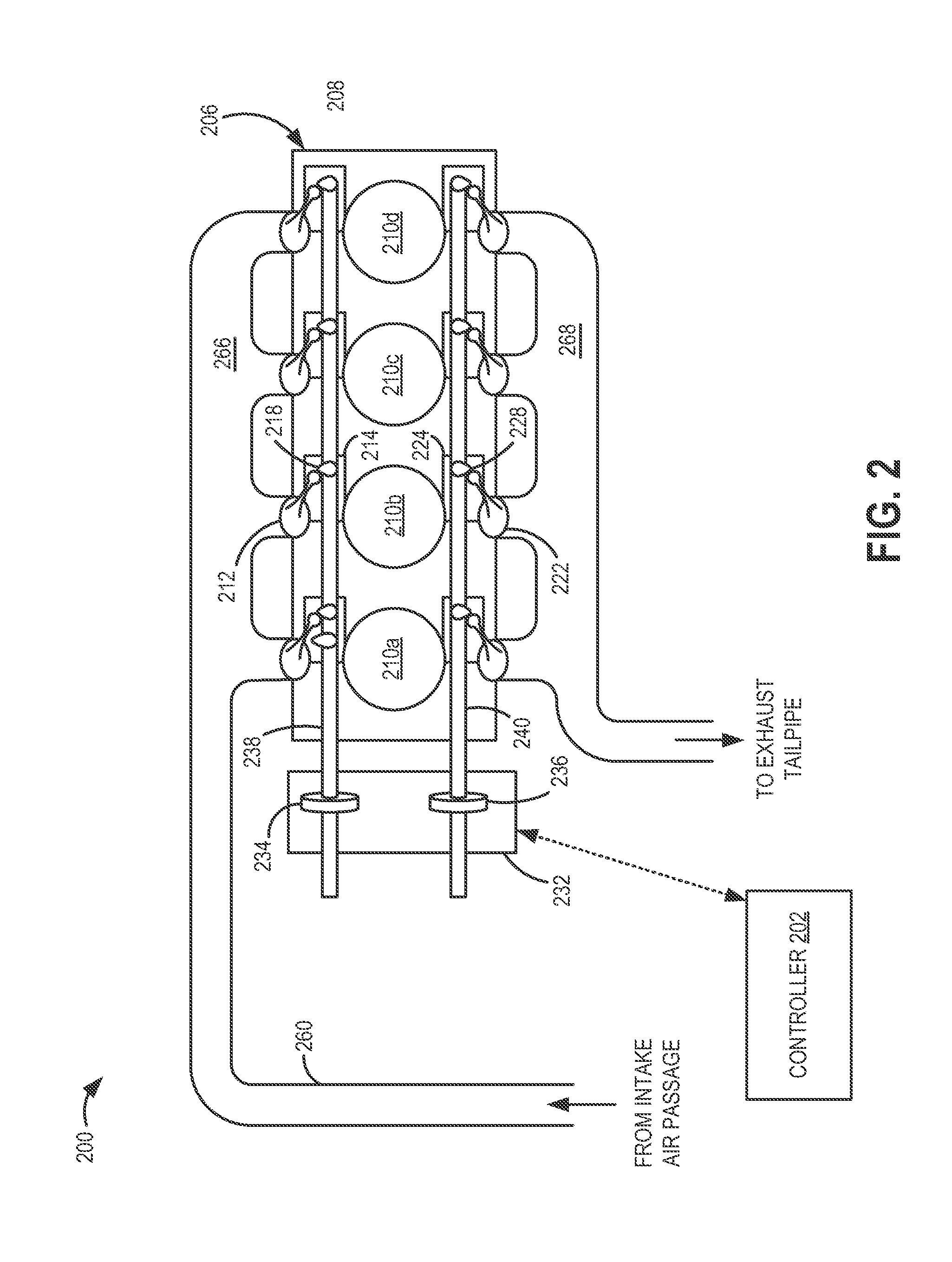Method and system for engine air control
a technology of engine air control and air flow, which is applied in the direction of electrical control, process and machine control, instruments, etc., can solve the problems of vibration transmission torque variations and related nvh issues may persist, and may be objectionable to the vehicle operator, so as to improve fuel economy, reduce torque variations, and reduce the effect of nvh problems
- Summary
- Abstract
- Description
- Claims
- Application Information
AI Technical Summary
Benefits of technology
Problems solved by technology
Method used
Image
Examples
Embodiment Construction
[0014]Methods and systems are provided for adjusting a valve timing of multiple engine cylinders (such as in the engine of FIG. 1) by operating a common actuator (such as the camshaft of FIG. 2). The position of a camshaft may be adjusted during engine idling conditions on a cylinder-by-cylinder basis, to reduce torque variations between the cylinders coupled to the camshaft. In particular, during any given engine cycle, the camshaft may be shifted to a first position when a first cylinder coupled to the camshaft fires, and then to a second position when a second cylinder coupled to the camshaft fires, and so on. A controller may be configured to perform a control routine, such as the example routine of FIG. 3, to adjust a position of the camshaft within camshaft limits to address torque imbalances between the cylinders. If the adjustment is not sufficient to address the torque imbalance (e.g., the adjustment is physically limited), the controller may use additional spark timing adj...
PUM
 Login to View More
Login to View More Abstract
Description
Claims
Application Information
 Login to View More
Login to View More - R&D
- Intellectual Property
- Life Sciences
- Materials
- Tech Scout
- Unparalleled Data Quality
- Higher Quality Content
- 60% Fewer Hallucinations
Browse by: Latest US Patents, China's latest patents, Technical Efficacy Thesaurus, Application Domain, Technology Topic, Popular Technical Reports.
© 2025 PatSnap. All rights reserved.Legal|Privacy policy|Modern Slavery Act Transparency Statement|Sitemap|About US| Contact US: help@patsnap.com



